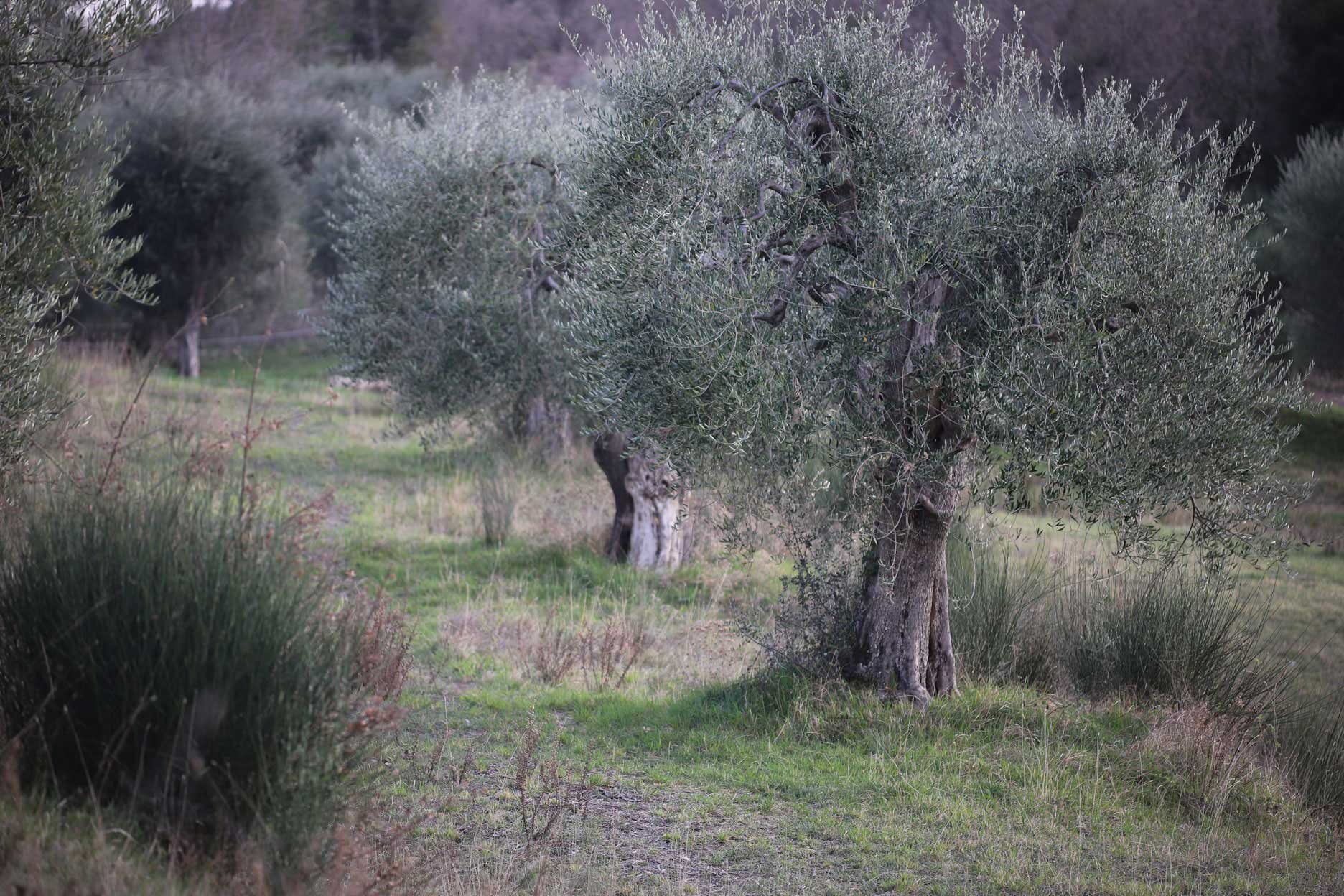
The Beautiful
Jamailah is an ancient Mediterranean name meaning 'The Beautiful'. Olive trees are truly mystical and gift us with an oil and wood unlike anything else.
Beauty crafted by nature
As you can probably guess, olive wood comes from the olive tree—a species of sub-tropical evergreen tree most famous for sprouting olives. Jamailah olive trees grow across the Mediterranean. More specifically, on the island of Lesvos in Greece, the Latina region in Italy, and Tunisia.
Olive trees are short, with twisted, gnarly-looking branches that live incredibly long lives. With so much time to grow, olive wood hardens and condenses into a thick, twisty wood, unlike anything else. It’s amber in color with streaks of rippled brown and creamy yellow. You can hardly even see the growth rings as they become densely packed after hundreds and hundreds of years.
Olive trees are generally small, twisted, and take years to reach full size, meaning the annual olive wood harvest is relatively small and expensive.
How to maintain the beauty of olive wood tableware
-
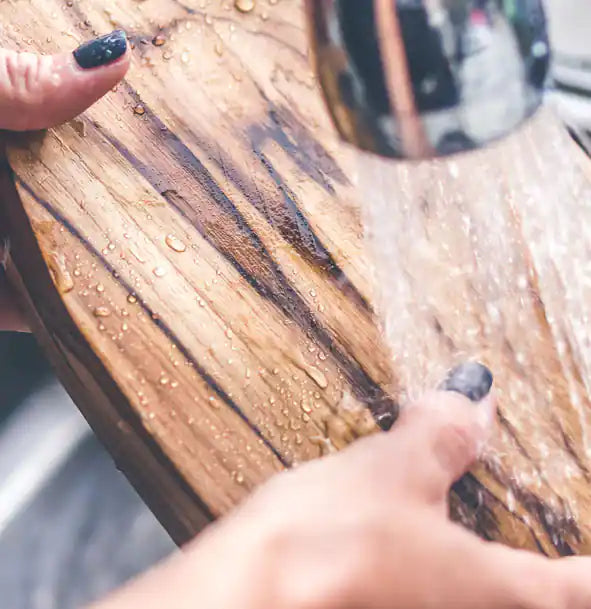
Avoid the dishwasher
Never place olive wood products in a dishwasher. Olive wood is not dishwasher safe as the intense heat of the dishwasher can warp and damage the wood. Although olive wood is naturally anti-bacterial, you should always wash it after everyday use. Spray the wood with warm water and gently apply a mild detergent to clear away any food particles. Rinse the detergent away and allow the wood to dry completely before using it again.
-
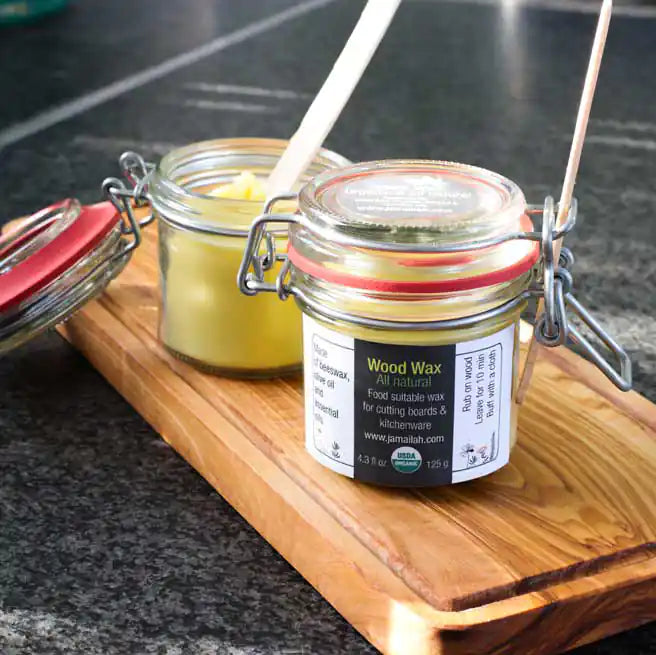
Wax the wood regularly
Many websites recommend to use inexpensive refined oils, but it’s not the best choice.
We recommend to use Jamailah Wood Wax for tableware made from beeswax, olive oil and essential oils. 100% foodsuitable. We provide a small sample with our olive wood products. Rub the wax on the wood, leave it for 10 min and then buff it with a cloth. Repeat this when the wood is losing its shine. -
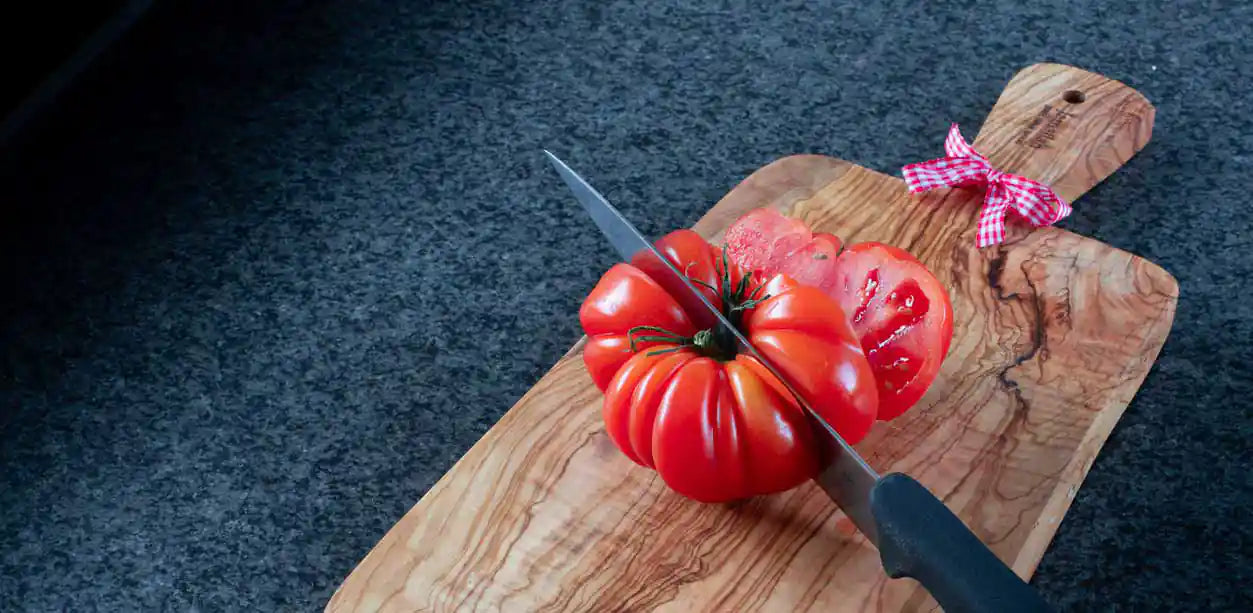
Cutting on olive wood
Olive wood is one of the best materials to make a cutting board. Its dense and durable composition allows it to stand up to knife blades without scratching like pine or other cheap wood. Additionally, its high density keeps meat juices from seeping into its pores. Whereas other woods can cause cross-contamination, olive wood stays clean without difficulty.
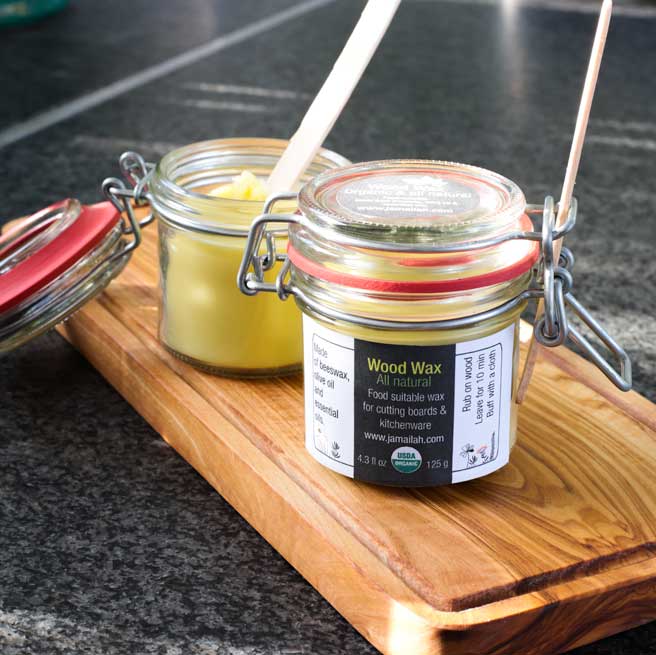
Jamailah
JAMAILAH Signature Wood & Leather Wax - ALL NATURAL HANDMADE
Share
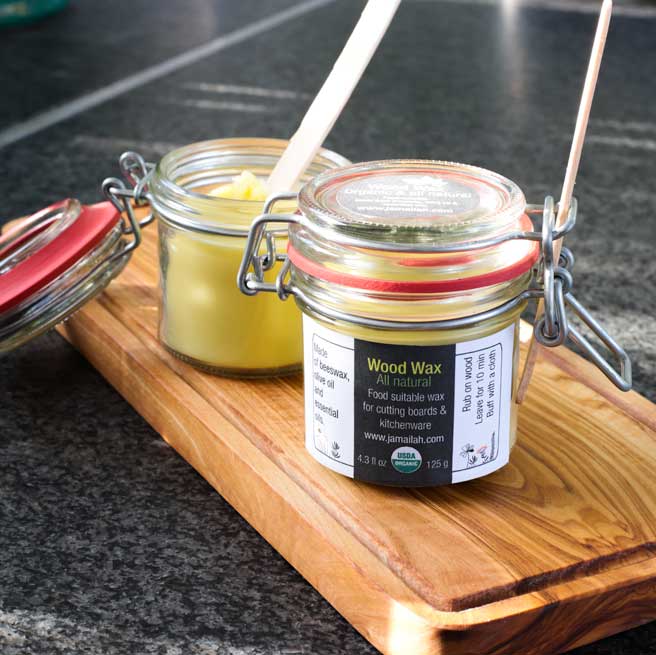
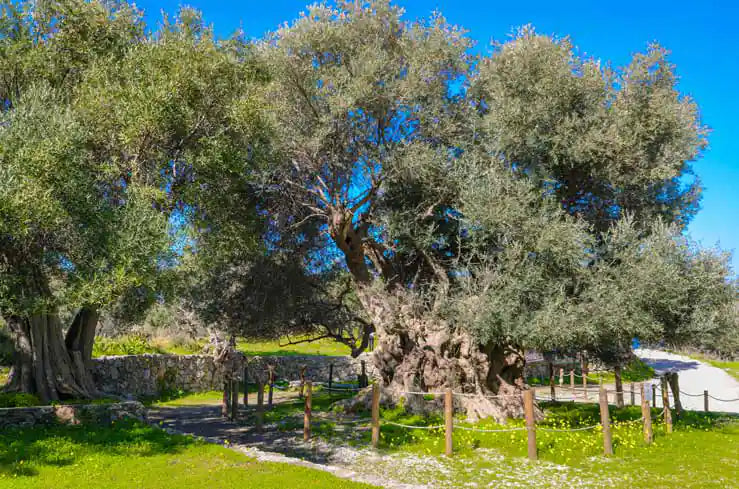
Over 2000 years old
is the olive tree of Vouvesin on the island of Crete in Greece. It's believed to be the oldest olive tree in the world and it still produces olives. It is confirmed to be at least 2000 years old based on tree ring analysis, but it’s claimed to be between 3000–4000 years old!
Did you know than more than 800 million olive trees dot the surface of planet Earth today, and almost 90 percent are located in the Mediterranean region.



